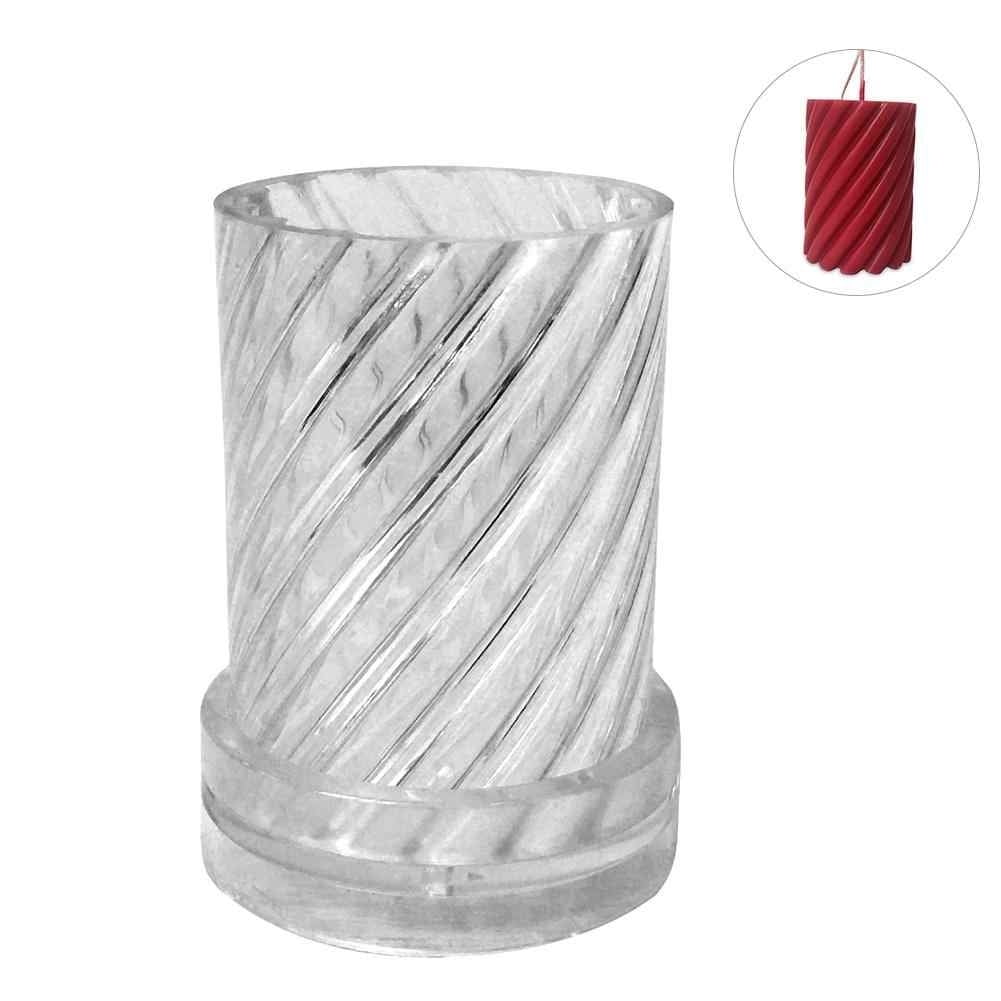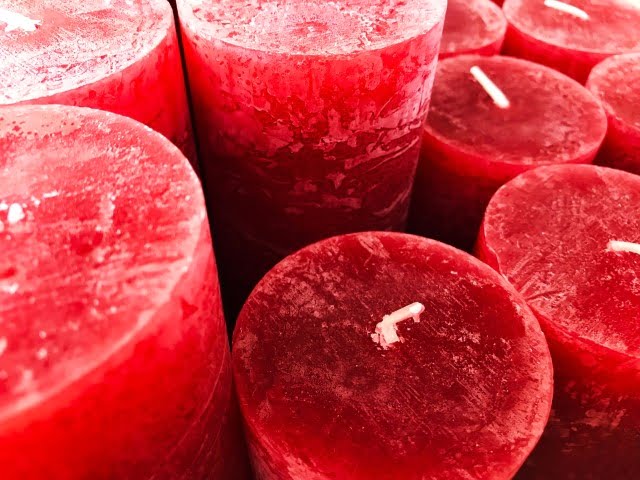Introduction
Soy candles are becoming increasingly popular as an environmentally-friendly alternative to traditional paraffin wax candles. Soy candles burn cleaner, last longer, and produce little or no soot when lit. Additionally, soy wax is biodegradable and made from renewable resources, making it a sustainable option for home décor.
When it comes to making your own soy candles at home, the first step is to decide what shape and size of candle you want to make. Whether you choose a container candle or votive, pillar or taper design, you can get creative with colors and scents as well. If you already have an idea in mind of the look and smell of your soy candle creation, you need to decide what type of wax will work best for your project. Soy wax is easier to work with than typical paraffin waxes since it has a lower melting point.
When choosing containers for your soy candle project, consider materials that can tolerate the high temperatures associated with melting soy wax without any damage or burning hazard. Mason jars are common go-to holders for most types of homemade candles ” just make sure there’s enough space at the top of the jar for any desired decorations!
For safely melting the soy wax before pouring into containers, try using either a double boiler system with heat sources such as an electric stovetop or hot plate; or set up a melt pot station using sturdy cardboard boxes lined with aluminum foil as makeshift walls on either side of the pot. Be sure to leave several inches between walls and pot to reduce any risk of overheating.
Once melted and combined with fragrance oil (essential oils are also great), it’s time to pour hot wax carefully into containers while simultaneously inserting wicks into the middle by hand or tweezers in place before it cools off too much. Allow your newly created soy candle(s) to cool off naturally without being disturbed until hardened — usually between two-four hours — then trim excess wick if needed before enjoying!
Supplies
Making your own soy candles at home is a fun and rewarding activity! Before you can get started, you need to make sure that you have all the necessary ingredients and supplies. Here is a list of what is needed to make soy candles:
1. Wax – Soy wax is the most popular choice for candle making and can be easily purchased online.
2. Wicks – There are many different types of wick available, with each type having its own advantages. Make sure that the ones you choose are suited to the size and type of candle you plan on making.
3. Containers ” Soy candles can be made in many different types of containers such as glass jars, teacups or even tins!
4. Fragrance oil – Fragrance oils will give your candles an amazingly beautiful scent! Opt for essential oils if you prefer an all-natural aroma.
5. Dyes – Soy wax takes very well to various dyes, adding a wonderful pop of color to your candles! Choose from powder, liquid or block dyes depending on what suits your needs best.
6. Pouring Pitcher- An old pot or jug can be used for this purpose but there are specific pouring pitchers available for those who want to take their candle making more seriously!
7. thermometer – A thermometer will help make sure that your wax temperature doesn’t get too high which could cause it to burn or not bind properly when cooling down .
8. Heat Source – You need something with an adjustable heat setting like a stovetop or hot plate so that you can heat up the wax without any potential safety issues associated with using open flame sources such as candles or lighters (please use caution whatever heating source you choose!).
Directions
Step 1: Gather Supplies. You will need soy wax, wicks, wax paper, double boiler, thermometer, glass or ceramic containers and appropriate scent for the candles.
Step 2: Set Up Your Work Area. Find a clean and well-ventilated area with enough space to spread out your supplies. Place wax paper on the work surface to prevent any spills from staining furniture or counters.
Step 3: Prepare the Soy Wax. Measure out the amount of soy wax you need for however many candles you want to make. Melt the wax in a double boiler over low heat until it is completely melted and reaches a temperature of around 140°F (or according to candle making instructions).
Step 4: Prepare the Candles Containers. Choose glass or ceramic containers that suit your desired shape and size for your candles; discard any that have chipped edges or do not open properly. Wipe down each container with a damp cloth and set aside until needed.
Step 5: Add Scents if Desired. Once the soy wax has reached its optimum melting temperature, remove it from heat and quickly stir in your chosen scents using small amounts at a time until your desired scent intensity is achieved; stir slowly but continuously so as not to add air bubbles into the mix”this can cause your finished product to have an “airless” look after cooling fully.
Step 6: Preparing Wicks & Jars for Pouring. Cut wicks at least ½ inch longer than your container height before placing them in each jar/container of choice; add 10-12 drops of melted wax onto corresponding wick tab area then immediately place into center of jar/container while pressing lightly against bottom surface”this is necessary for successful adhesion between the two components once cooled completely; give each filled jar/container two shakes clockwise and repeat one shake counterclockwise while holding firmly against table surface to ensure proper positioning of all components within before pouring hot liquid wax in next step below.
Step 7: Pouring Wax Into Containers & Finalizing Candle Creation Processes . Once all wick preparations are complete, hold each individually prepared jar/container steady against table surface then slowly pour heated soy wax mix into each vessel ensuring not to overfill ; continue stirring slowly between pourings as needed for better scent dispersion until all vessels are filled accordingly prior moving on step eight below…
Wicks
When making a soy candle, selecting the correct wick is essential to creating a successful candle burn. Cotton core wicks are natural and can be used for both paraffin and all types of vegetable-based waxes, especially soy wax. Using a wick that is too small or one that isn’t designed for the type of wax you are using will result in a poor burning candle. To determine the best size of wick for your candles, you will need to consider several factors including the type of wax and diameter of the container being used, as well as the additives (scent/dye) being added.
When using soy wax, it is important to select a wick specifically designed for it. Soy Wax has a low melting point which creates some unique challenges when it comes to candle making. When too hot, Soy Wax has a tendency to tunnel and cause excessive sooting”sooting occurs when the flame from the burning candle is not able to consume all of the fuel generated by the melted wax. This may create unsightly dark stains on top of your beautifully crafted candles. To help rectify this issue, it’s important to select an appropriately sized wick and ensure that your container choice allows adequate ventilation for optimal burning performance and minimal sooting risk. Additionally, be sure to center your wicks carefully as an unevenly centered wick will contribute to improper burning characteristics. Once you’ve selected a size that works best for your candles”it’s essential that each and every time you make future batches, use an identical size or strain/type of wicking material in order to keep consistency across batches!
Scent
Choosing a fragrance for your candle can be one of the most exciting parts of making soy candles. With the growing number of commercial fragrances available, there is a nearly limitless selection of scents to choose from. Some popular fragrances used in soy candles are floral, fruity, woodsy, and fresh. If you want your candle to be more unique, you can even mix different scents together or use essential oils to make your own custom blend. When shopping for aromas, keep in mind that many substances already have an aroma which may be strong enough to scent a candle without any additional fragrance. To bring out these aromas in the wax, it’s best to add a bit of an essential oil or synthetic fragrance that corresponds to the natural scent. For instance, if you are making candles with coffee beans inside them, adding a coffee-scented fragrance oil will help emphasize their natural aroma and make sure it is distinguishable when burning. Regardless of what scent you choose, remember that it should reflect your style and personality so have fun picking out something you love!
Color
Adding dyes to candles is a great way to make your soy candles more interesting and vibrant in appearance. If you want to dye your soy candle, you must first get the right type of wax dye, as regular dye or paint won’t work properly. You’ll want to use commercial, solid-form dyes designed specifically for candle making.
These dyes can come in two forms: flakes or blocks. Candle making flakes are generally easier to work with, but you need color theory knowledge if you want to customize your own shades from a combination of different colors. When using flakes, you measure them according to intensity – 1 tablespoon per pound of wax should provide roughly medium-tone coloring. Blocks will naturally provide a darker tone.
It’s important that the dye be completely dissolved by the time it gets added into your melted wax – if not, particles may settle out and clog up the wick instead of remaining dispersed within the wax liquid. To avoid this issue, it’s always wise to dissolve your wax dye into the fragrance oil first before adding it into the melted wax itself. Doing this extra step will help ensure that all your batches come out with consistent coloring every time!
Decorations & Embellishments
Making soy candles can be a fun and rewarding craft that yields great results. When making your own soy candle at home, you have the ability to personalize your handmade creation with decorations and embellishments of your own choosing. Here are some tips on how to beautify your candle:
1. For a truly unique look, consider adding natural materials such as dried herbs, pinecones, seashells, or even colorful small stones to the top of the candle for an added element of texture and aesthetic.
2. To give the candle a more luxurious touch, you can tie bows around it using different kinds of ribbon from velvet to lace or cotton. Alternatively, you could use twine for a more rustic feel.
3. Waxed leaves also make for an excellent decoration, as they bring out all sorts of hues in the wax depending on their color and shape; why not go for traditional maple leaves with hints of red come autumn?
4. Use pieces of plain or colored paper to create cute little origami figures that reflect whatever theme your candle is going for: a starfish pattern might work great if you’ve chosen beachy decor!
5. Finally, don’t forget about labeling ” choose decorative stickers that match the overall look and feel you’ve created and add labels featuring your favorite inspirational quotes or simply stating what scent the candle carries inside it!
Pouring
When you pour soy wax for making candles, there are several key tips to help ensure success.
1. Heat the wax: While melting wax, use a thermometer to make sure the temperature does not exceed 185° Fahrenheit. Soy wax requires a lower melting point than paraffin and beeswax, so it is important not to heat it too hot – higher temperatures can damage the integrity of the melted wax.
2. Manage temperatures: When pouring your heated wax into the candle container, be sure to let it cool 9-10 degrees Fahrenheit before you add any additives or wicks. This will help ensure that everything mixes together without causing clumps or separations in your poured candle. The ideal pour temperature for soy wax is between 140-150° Fahrenheit (depending on additives), but it never hurts to check with the supplier’s guidelines before starting your project.
3. Work quickly: After adding colorants or fragrances, you have around 10 minutes to work with the melted wax before letting it set up – allowing too long can cause issues such as cracking or denting your finished candles’ surfaces when removed from their molds after cooling down. As soon as you’re finished pouring, jiggle each container lightly to release trapped air bubbles; this will promote even burning for your candles once lit!
Finishing
When you are finished making your soy candle, you may want to give it a professional appearance. You can do this by applying a final layer of wax after the candle has cooled and before labeling it. This finish coat lets the wax color flow and fills in any air gaps that can occur with additive free candles, giving it a uniformed look. Another way to add an extra highlight is by adding some fragrance oil to just the last layer of wax. Lightly drizzle the scent across the top of your candle before letting it cool again. Lastly, adding a neat label will give battery operated candles or votives an elegant touch when lit or displayed around your home and can even be used as thoughtful gifts for family and friends!
Clean Up
Removing wax from your working areas after making soy candles may seem like a daunting task, but with the following tips, it’s easy and can be done in no time. Start by removing large chunks of wax immediately after you make the candle. Use newspaper or paper towels to absorb any excess liquid wax that has leaked out or dripped onto your surfaces. Once these have been removed, it’s important to use a detergent that is biodegradable and non-toxic to clean the remaining stain left by the melted wax. Next, use an ice cube to harden any small residue of wax on the surface and then scrape it off with a knife. Finally, if there are still stubborn stains of wax left behind, you can try using a vacuum cleaner with low suction to remove them. Remember to take safety precautions when using knives and vacuums around children or pets. Come back here for more tips on how to make homemade soy candles!
Conclusion
Making soy candles has a wide range of benefits when compared to other types of candles. They burn longer than traditional wax candles and can be made with natural, eco-friendly materials that are better for the environment. Soy candles also require less maintenance and are easier to clean up after they’ve been burned. Additionally, they’re safe to use as there is no risk of hazardous emissions or pollutants, giving you peace of mind when enjoying them indoors. Finally, soy candles are cost effective as they last twice as long as regular wax candles and can be customized easy with various colors and scents. The benefits of making your own soy candles make it an ideal hobby or project for anyone who wants to prepare their home for special occasions or just transform their living area into a cozy space!

Welcome to my candle making blog! In this blog, I will be sharing my tips and tricks for making candles. I will also be sharing some of my favorite recipes.





